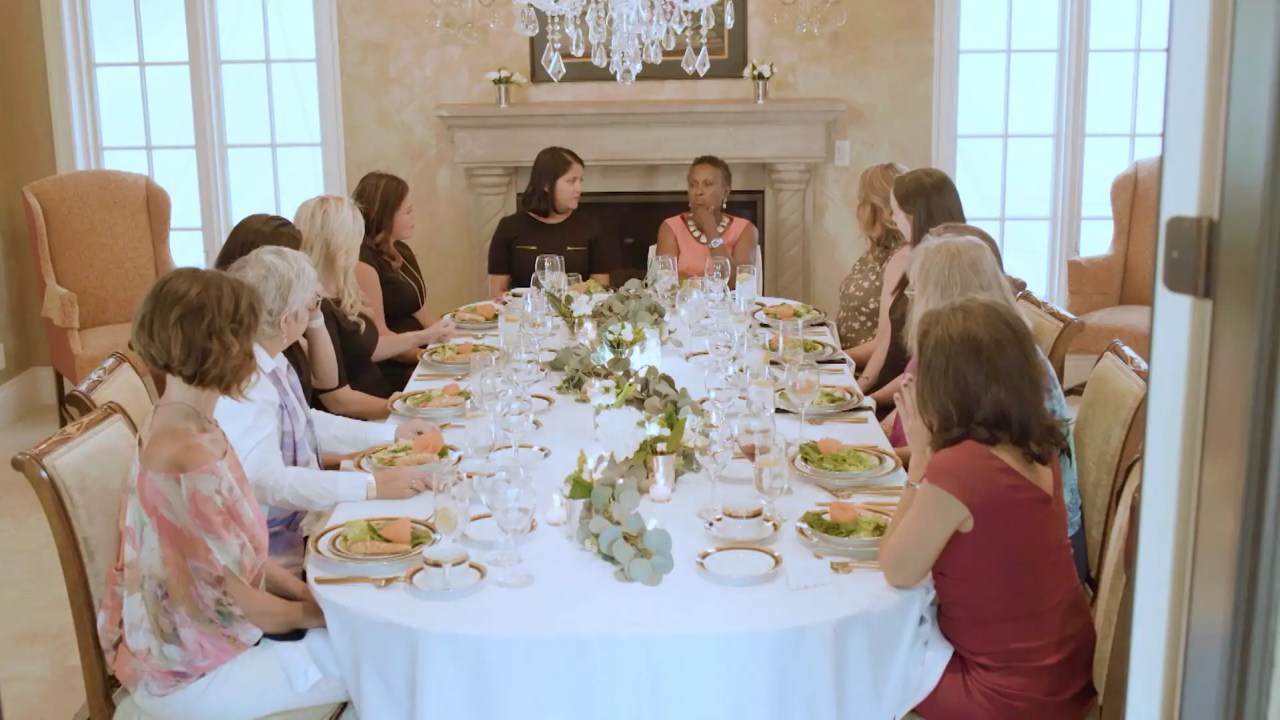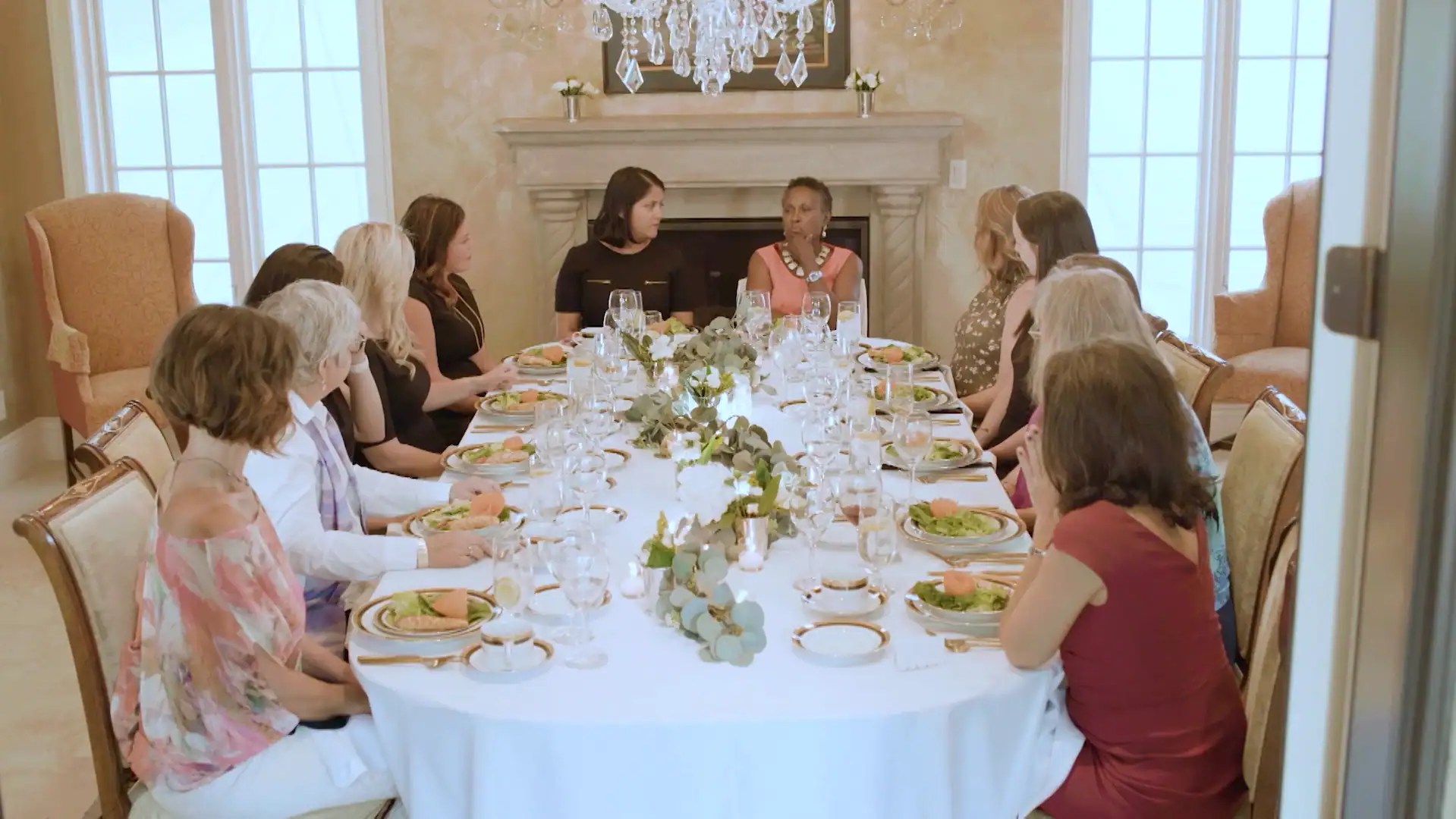Nothing heightens the sense of the unpalatable better than a dinner scene. Think of the violence meted out at the dining table in Pasolini’s Salò (1975). Think of André Gregory lecturing Wallace Shawn on his solipsism – much to our discomfort – in Louis Malle’s My Dinner with Andre (1981). CBC’s documentary Deconstructing Karen accidentally borrows from the form. Eight white women are chided ceaselessly at dinner by two activists – failed Congressional candidate Saira Rao (who is Indian-American) and hitherto unknown Regina Jackson (who is African-American) – until the white women admit that they are racist. Rao and Jackson are co-founders of Race2Dinner, an events company specialising in coming to white women’s homes to shame them while they dine.
‘Karen’ (or ‘Becky’) is a pejorative term for an unreasonable, entitled white woman that entered mainstream discourse a few years ago. More recently, Karen and Becky have, unfortunately for them, simultaneously become a name for all white women and the face of American racism. To label women the ‘most dangerous’ racists and charge them with the responsibility of correcting racism in America is plainly ridiculous and sexist. To this point, Rao evades the topic with a well-practised tautology that becomes increasingly familiar: ‘What is more Karen-like behaviour than being furious for being called a Karen?’ Evasion, misinformation, and exaggeration are central to her ideology. She claims white women are ‘killing’ her. Rao holds a law degree from New York University and is married to an investment banker.
Jackson is a more sympathetic character. She is emotionally authentic, a compelling speaker, and at least appears to listen. She is nevertheless a mouthpiece for some extraordinary and dangerous claims throughout the documentary: that all black people in America are the descendents of slaves; that nothing about the experience of being black in America has changed in 450 years; that being Muslim is illegal in America; and that white women have never effectively allied themselves with black women. Rao chimes in at some point saying all South Asian-descended people in America came to flee the ‘genocide’ enacted by the British in their homeland.
No one points out that black people with no relationship to slavery have immigrated for generations; that slavery, lynchings, and segregation laws have long ceased; that 3.5 million Muslims live in America; that abolition was a demand of 19th century American feminism; and that the vast majority of South Asian immigrants came decades after the fall of the Raj. Why would anyone try to diffuse this situation with facts? When the participants dare to suggest that their own experiences, feelings, and worldview differ to that of the hosts, they are shouted down.
The participants are subjected to cult-like discipline to break them down. Jackson calls this technique provoking a ‘significant emotional event’. Women who cry during their re-education are punitively made to sit alone in a different room because white women’s tears are also tools of white supremacy because they distract from Rao and Jackson. While one of the guests explains her reasonable concern that her son may become an actual racist if he is told that his entire existence is a form of racism, Rao reverts to form and talks about herself. She evasively tells another of her many implausible anecdotes: that her very young son was approached by a stranger and told his ‘skin is disgusting’, in Denver, in 2019. Another participant suggests that we’d do better to treat one another with love and empathy, and assess individuals by their values and personal context rather than by their skin colour. She is dismissed as a hokey white supremacist. Some Karens just don’t get it.
We never learn what racism is or how to fix it. We instead learn that skin colour is the most salient category of analysis; that all white people are racist; and that racism will always be the dominant structure we live in. So why do any of this? While Rao insists her ideology comes from a place of love, Jackson says the quiet bit out loud: ‘the market we have identified is white women who call themselves “liberal” or “progressive”,’ i.e. the choir. Each dinner costs $5,000. The next shot is a closeup of Jackson’s multi-carat diamond ring.
Deconstructing Karen is an artefact that will outlast its moment, but not because it is good. Viewers to come will be astonished by the overt narcissism and self-interest of the hosts. Sensible people will be shattered by the anxiety caused by watching the sponge-like absorption of ideology in real time. The entire concept will remain delectably surreal. I propose it is remade as a film as soon as we all return to reality.







Comments